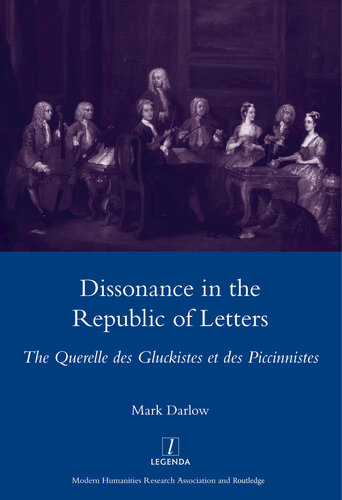

Most ebook files are in PDF format, so you can easily read them using various software such as Foxit Reader or directly on the Google Chrome browser.
Some ebook files are released by publishers in other formats such as .awz, .mobi, .epub, .fb2, etc. You may need to install specific software to read these formats on mobile/PC, such as Calibre.
Please read the tutorial at this link: https://ebookbell.com/faq
We offer FREE conversion to the popular formats you request; however, this may take some time. Therefore, right after payment, please email us, and we will try to provide the service as quickly as possible.
For some exceptional file formats or broken links (if any), please refrain from opening any disputes. Instead, email us first, and we will try to assist within a maximum of 6 hours.
EbookBell Team

5.0
20 reviewsThis book seeks to recontextualize the quarrel, embedding it in the cultural politics of the 1770s, and thereby to offer a richer account of the disputes which would account for some of the wider issues at stake.
Eighteenth-century French cultural life was often characterised by quarrels, and the arrival of Viennese composer Christoph Willibald Gluck in Paris in 1774 was no exception, sparking a five-year pamphlet and press controversy which featured a rival Neapolitan composer, Niccolò Piccinni.However, as this study shows, the Gluck-Piccinni controversy was about far more than which composer was better suited to lead French operatic reform.
A consideration of cultural politics in 1770s Paris shows that a range of issues were at stake: court versus urban taste as the proper judge of music, whether amateurs or specialists should have the right to speak of opera, whether the epic or the tragic mode is more suited for drama reform, and even: why should the public argue about opera at all?